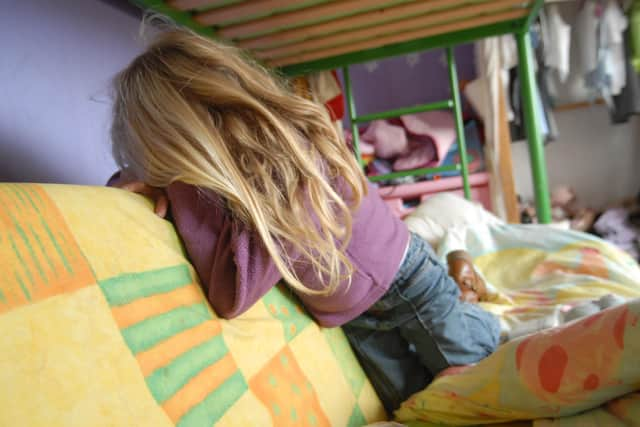Toxic masculinity in Hampshire schools leading to abuse and harassment of other pupils
and live on Freeview channel 276
A new report, presented to Hampshire County Council this week, examined peer-on-peer abuse, the causes and how to best deal with in-school incidents.
The root of these problems often comes from home life, and leads not only to verbal and physical abuse but even sexual harassment.


Advertisement
Hide AdAdvertisement
Hide AdNow, education bosses are looking at how to create societal shifts both in the classroom and at home.
Karen Nye, county education manager, said: ‘Often trauma manifests itself in bad behaviour, which can lead to abuse, but it’s complex and we have to deal with it at the source - which is with their families.
‘Young people in schools will sometimes behave like that because they want to fit in with their peer group, or impress others.
‘It’s difficult to talk about these children as victims and perpetrators because sometimes they are as young as six or seven years old, but both sides will need our support.’
Advertisement
Hide AdAdvertisement
Hide AdCouncillors on the education advisory panel also noted that young people are being exposed to toxic masculinity, and even violent pornography, at home.
SEE ALSO: Southsea Chinese restaurant Noble House loses its licence for having illegal kitchen staff
Toxic masculinity is a broad term, but generally describes someone's 'manliness' being determined by aggression, status, violence and sexuality.
Ms Nye, who said children as young as three are being affected by this, added that the Hampshire Inspection and Advisory Service (HIAS) is working with schools to help them identify signs that children are being harassed or abused, whether that’s in school, at home or even online.
The county council’s assistant director for education and inclusion, Brian Pope, said: ‘Being told that one of your parents is wrong about something can be extremely antagonising for a young person. This is work that needs to be carried out with families, not just with the children themselves. What happens at home is very important.
Advertisement
Hide AdAdvertisement
Hide Ad‘It’s really complicated for schools to look at this. People have to feel comfortable in reporting issues such as this, but it stems from toxic masculinity.
‘We need to have a curriculum that deals with toxic masculinity for children - it sounds difficult but is essential.’
A message from the Editor, Mark Waldron
Subscribe here for unlimited access to all our coverage, including Pompey, for just 26p a day.
Comment Guidelines
National World encourages reader discussion on our stories. User feedback, insights and back-and-forth exchanges add a rich layer of context to reporting. Please review our Community Guidelines before commenting.

